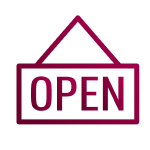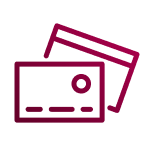Business Banking

SBA Loans
Dream big with Small Business Administration funding
Credit Cards
Optimize your business's cash flow with financial flexibility
Business lending with a local focus
Many people think that the only distinction between banks is interest rate – what they charge on loans or pay on deposits. And while most bankers say they want to be your partner, they neglect to share how that experience will look and feel. That’s because many times they define partnerships as an annual visit that’s prompted by your loan’s renewal date. Our relationships are more than rates and loan renewals. Here, you will experience partnerships with continuous dialogue and value.

Business Banking
Maximize your purchasing power.
Discover the power of flexibility and rewards plus no annual fee with our Visa Signature Business Rewards Credit Card.
Related services
Choose from four checking solutions to help you manage your money and keep your business moving.
A savings account is a great place to park idle cash for easy access when your business needs it.
Deposit checks from your business into a First Bank account with a small desktop scanner and internet connection.

Digital Banking
Deposit checks from your farm and on the go.
The My First Bank Business Deposit App makes it easy.
business/lending
Loans subject to credit approval. First Bank cannot provide tax or legal advice. Please seek the guidance of a tax or legal professional if you have questions.








